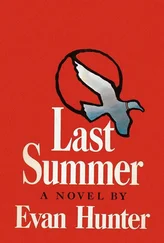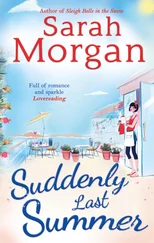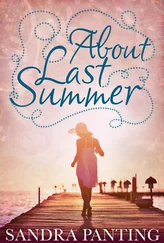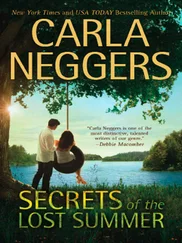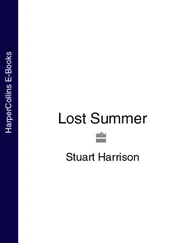I watch the truck move until it’s right outside the house. Mama comes in. What am I doing? I point. They never paint the pavement or plant flowers. It’s because the president’s wife is coming to open the library at the end of our street. It’s the most beautiful villa on the island. It used to belong to the Karassos, she says. Last time when the president was coming to the Opera House they did the same thing. Mama tells me, Come on, we are going out for a while . Where are we going? Out. Where? To buy fabric. For what? The armchair. From where? Downtown. How come?
—
In the morning Uncle came. He brought the newspaper and sat plonk on the armchair without kissing anyone or saying hello. Look at this. They are floating it, but no doubt they will adopt it. He put his finger on the front page then threw it onto Mama’s coffee table. It slid and landed in the gap between the leg and the sofa. I was standing by the mashrabiyya doors that lead to the bedrooms. Mama had been in the kitchen and walked in. She had on her reading glasses and looked at Uncle from over them and down her nose. Mama didn’t like things lying on the floor. I picked it up. Uncle came every Sunday after Baba left. He wasn’t really my uncle but we called him that. What are they floating? Mama asked. He waved his finger. The flag . I stared at the flag. It didn’t look so different. You see, if they approve it we’re going to have to reprint everything. Everything, everything. It will cost the country a fortune. All this for what? Ego! He made a sound like a huff, as if he were running. Uncle was always talking about ego. Before Baba left, he told him that his problems were because of ego. They looked serious. I could tell it was an adult conversation. Uncle was at the house a lot before Baba left. They would go into the dining room and close the doors and talk. It was always night when he came and I would go to bed before they finished. Now Uncle came in the mornings. Always on Sunday.
The flag was like the old flag, with three stripes. Black on the bottom, white in the middle, red on top. It also had a golden eagle but the eagle in the new flag looked different. His wings were different. They were bigger and had feathers. Uncle asked me to read. Arab Republic of Egypt. Did I know what the old flag said? It also said Arab Republic of Egypt. But it also said Federation of Arab Republics. The coloring on the new eagle was also different. Uncle had a big belly. You would see his belly before anything else. He looked at me and leaned forward. He was frowning. I couldn’t understand why he was so upset. You can say this is a modern eagle. An eagle for the times. Do you know how many flags we have had little girl? The sweat was dripping down his head. There were puddles on his shirt. He kept looking at me. I shrugged my shoulders and shook my head. Don’t they teach you these things in school? Uncle laughed heavily, also like Baba. You know how many flags there have been? I’m sure even your mother doesn’t know how many flags there have been. He turned to Mama. Of course not. He laughed more heavily. Please, one of you, an ice-cold glass of water. Mama went. While she was gone he told me we had nine flags. This would be our tenth. It was testimony to how rich our history was. No other country had as many flags as we did. Mama came back with the water. She gave Uncle the glass. We watched. He drank it in one gulp then banged it on the table. Uncle never used the coasters and Mama picked it up quickly. I asked Uncle what the flags were. Mama said she would leave us to our history lesson. She went through the mashrabiyya doors to her bedroom. They were swingy doors but Mama never let them swing. She opened and closed them so that they wouldn’t make a sound. Uncle asked me for a paper and my coloring box. I sat next to him. He began to draw. These things no one will teach you . Uncle drew well. He was an architect and designed houses. I liked drawing with him better than anyone else. He lived in a big house far away, in Faiyûm, by the lake. His house was different from any other house. It had domes, like the kind in Aswan at the hotel we stayed in. Each dome had small holes, like windows, but tiny. Uncle said it was a cooling system. It was also about shadow and light. He told me that architecture was about making art as much as it was an exercise in finding practical solutions. Architects who thought like him were a dying breed. Uncle had studied with Hassan Fathy. People no longer designed and built the way Hassan Fathy did. He was eighty-four years old now and Uncle said it’s that time. And only when he died would he be celebrated in Egypt. That’s what Uncle said. I loved Uncle’s house. Mama said it was too eccentric. Baba said it was too simple and not his style. He had a courtyard in the middle with a fig tree and a wooden bench. We would sit on it together and watch the shadows move. For one hour Uncle made me draw all the different shadows on a paper until in the end I had a drawing. He called it an abstract and told me it was a replica of a famous painting in a European museum. I can’t remember which one. Everyone who had a house had a fig tree and an olive tree. They gave the house a longer life. The Quran said so. Granny planted four but we only had two now. Mama said they were our protection. I could hear her in the bedroom on the phone. She took it in with her at night and brought it out again in the afternoon. Mama never sat with Uncle and me. She would wait until we finished drawing then tell me to go to my room because they had grown-up things to discuss.
Uncle was still drawing the flags. I liked the flag of Ottoman Egypt the most. It was red with a white moon and star. My second favorite was the Egyptian Revolution flag. It was a mix of three flags, including the one we used to have when we had a king. The ugliest was the United Arab Republic flag when we were one country with Syria. It looked like our flag now but with two green stars. One star was for Egypt and the other for Syria. Uncle said the idea of a United Arab Republic was a failed idea from the start. I looked at him. Everything Nasser did was a failed idea. I waited for him to say something else. He asked for more water. When I came back with it I asked him about Nasser. Dido says Nasser was a great man. The men who made the revolution were all great but their children are corrupt. Nasser did great things for Egypt. Mama doesn’t like him. Baba does. Dido hopes there will be another Nasser one day. How come they never tell us about Nasser at school? Uncle slapped his hand on his thigh. He had only finished half the water. The glass was on the arm of the sofa. He put it to his mouth and swallowed the rest. He put his arm out and I took the glass. Uncle started telling me about Nasser. He had no vision. He was delusional. He didn’t think into the future. He took from the rich and gave to the poor. It was the worst thing he ever did. The poor got things for free and then became lazy. They got land and benefits then thought they could do nothing and Nasser would still give them more. He also made education free, which was very expensive, and so very quickly he didn’t have the money to pay for it anymore. Education went down the drain. Teachers weren’t being paid properly, so they didn’t make an effort. Students had to start taking private lessons. They started memorizing and stopped thinking. Everyone became lazy and stopped thinking. It was a lethal combination. He paused to breathe. What does lethal mean? To kill a country and its future. To destroy any opportunity for future generations. To take a beautiful field of flowers and pour concrete on it and still expect the flowers to grow. I was always falling and hurting my knees on the concrete playground at school so I decided this must be bad. Nothing he did was sustainable, Uncle said. He took a big breath. Mama was always using that word. She used to tell Baba that his lifestyle was not sustainable. Uncle said we were still paying the price for Nasser’s mistakes. But how come Dido said Nasser was a great man if he did so many terrible things? It was about education. At school they taught children that all the Egyptian presidents were great. Only the king was bad. Why was the king bad? Because he was a creation of the British.
Читать дальше
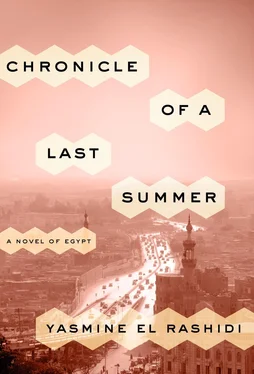
![Маргарет Миллар - Rose's Last Summer [= The Lively Corpse]](/books/384369/margaret-millar-rose-s-last-summer-the-lively-c-thumb.webp)
